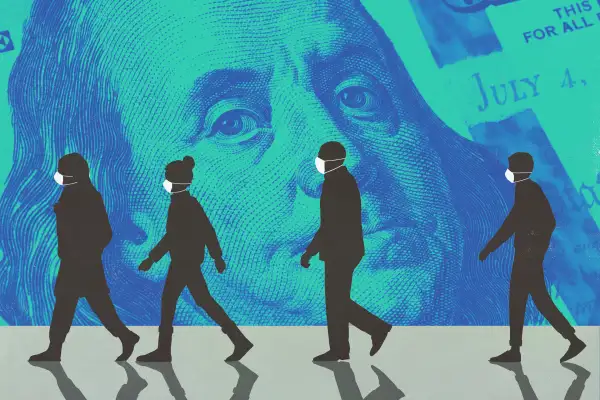Some Americans Are Getting Bonuses to Give Up Unemployment Benefits and Return to Work

As states across the country reopen, more workers are able to ease off unemployment and return to work – but they might not want to.
The government has been providing extra unemployment benefits to help people cope with the coronavirus pandemic, and unemployed workers in some states have been getting paid more than what their wages would be. Many workers are also uneasy about going back to work due to health concerns, especially because coronavirus rates are increasing again in some parts of the country.
Back-to-work bonuses, doled out by the government, could be a possible motivator to entice people off the unemployment rolls.
At least one state so far (Idaho) announced it will be giving one-time payments to people who leave unemployment and get back to work this summer. And the concept could spread nationally. The Trump administration is considering a measure that would pay a bonus for returning to work, National Economic Council Director Larry Kudlow said on CNN Sunday.
“It will create an incentive to work,” Kudlow said.
Employment subsidies like this are not unusual in other countries when unemployment rises, Richard Burkhauser, professor emeritus of Policy Analysis at Cornell University, tells Money. The German government, for example, is offering companies funds to pay workers who get back to their jobs. But the move would be largely unprecedented in the U.S., Burkhauser adds.
“This is something that’s unusual but we live in unusual times,” says Burkhauser, who was also a member of the Council of Economic Advisers for the Trump administration before he left in May of last year.
Who Gets a Back-to-Work Bonus?
Kudlow didn’t provide much in the way of specifics about the potential back-to-work bonuses. He told CNN that the payments would probably not be as large as the current $600-per-week extra unemployment benefits that out-of-work Americans have been receiving. Overall, it's hard to know exactly what these benefits would look like and who would get them. But the White House isn’t alone in considering the bonuses as a way to aid the economic recovery.
Idaho’s Governor Brad Little recently announced a plan to offer one-time bonuses. In his plan, Idahoans returning to full-time work would get $1,500 while those returning to part-time work would get $750. They would receive the money after returning to the workplace.
Senator Rob Portman (R-OH) proposed that the federal government offer $450 a week (in addition to their wages) for those who return to work and stop collecting unemployment benefits. Separately, Rep. Kevin Brady (R-TX) proposed a $1,200 bump once they find a job. Both measures are only proposals at this time, and they would just last only until July 31.
Unemployment Benefit Bonuses Are Ending
The possibility of back-to-work bonuses arises as bonus unemployment benefit payments appear to be coming to an end. The Coronavirus Aid, Relief and Economic Security (CARES) Act passed in March gave an extra boost to unemployed Americans, who were getting laid off during a pandemic that made it very difficult for them to land new gigs. They received up to $600 a week on top of their usual unemployment benefits, depending on which state they lived in and how much they earned.
The weekly bonus benefits are expected to end on July 31, with tens of millions of Americans still out of work. More than 1.5 million people filed new state unemployment claims in the week ending June 6, the Labor Department said last week.
More Stimulus Checks or Back-to-Work Bonuses?
Despite a big demand among taxpayers for second stimulus checks – the one-time payments of up to $1,200 for adults and $500 for children the federal government issued to offer financial relief – it doesn’t look like we’ll be getting another round of payments anytime soon, if at all. And a continuation of the extra $600 for the unemployed? It’s also not looking promising.
Kudlow said on CNN that the extra $600 is “in effect a disincentive” for people to get back to work, and that while it “might have worked for the first couple of months, it’ll end in late July.”
“We’re paying people not to work,” Kudlow said. “It’s better than their salaries would get.”
Health Risks of Returning to Work
When weighing whether or not to return to work, people have more to consider than just the money. They need to think about whether they’re putting themselves or their loved ones at risk as well. Some workers are justifiably afraid of returning to the workplace, but risk losing unemployment benefits if they refuse.
The Center for Disease Control and Prevention has guidelines for businesses as workers return, and there’s a growing number of businesses introducing temperature checks and coronavirus tests as measures to help avoid outbreaks.
There have also been horror stories about the medical bills that follow treatment for the virus. And a one-time back-to-work bonus payment almost surely won't be enough to cover a hospital stay.
More from Money:
As States Reopen, Workers Afraid to Return Risk Losing Hard-Won Unemployment
Yes, You Can Still Claim Unemployment While Working Part-Time. Here's What You Need to Know
